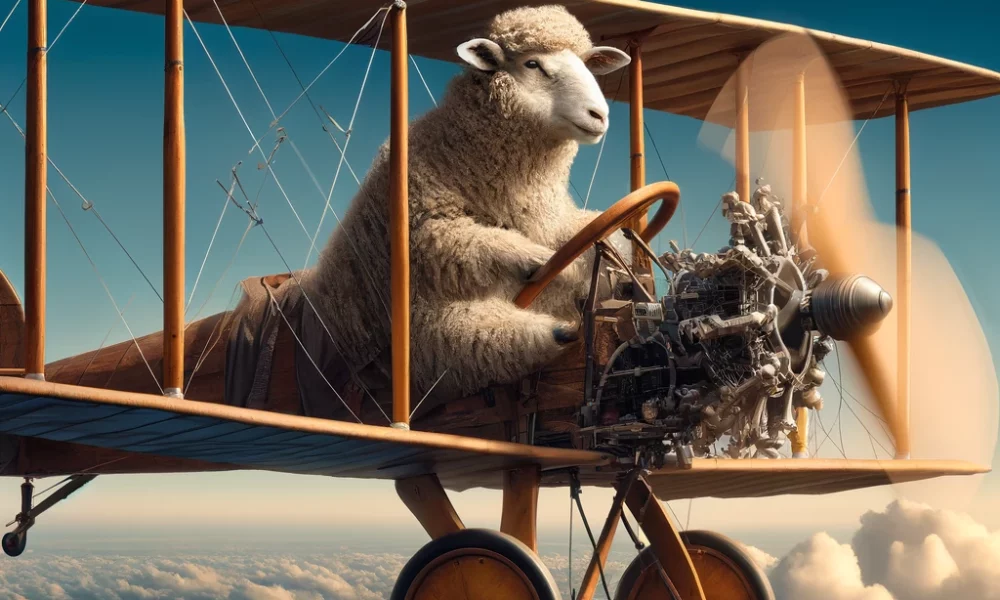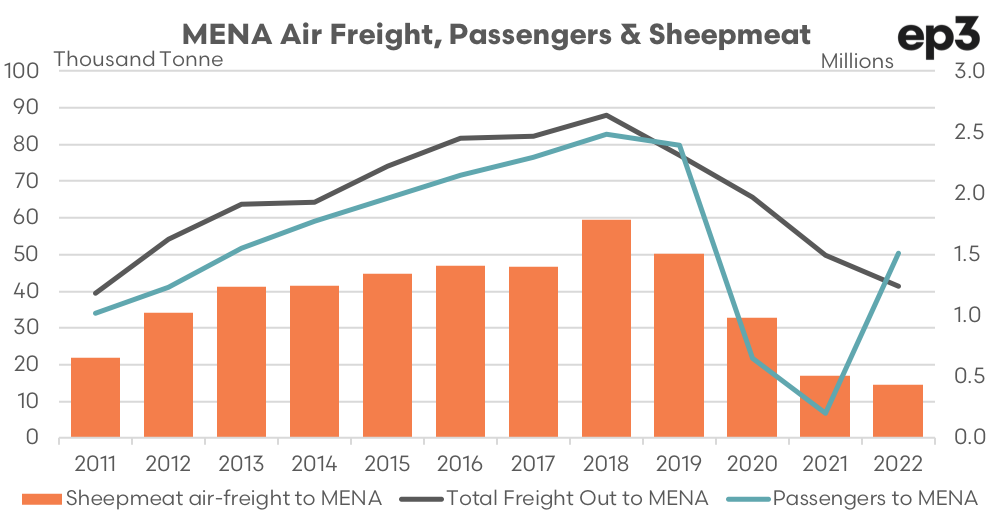Live Export 5: Makes no sense

Live Sheep Export Special Edition
This article is part of a series focusing on the live sheep export trade and the recent decision by the Australian Government to phase out the trade by May 2028.
The decision to restrict access for Qatari passenger flights to Australia is a pretty short sighted decision from the Australian Government, particularly when it comes to our boxed sheep meat trade and the proposed phase out of the live sheep export sector. The air freight avenue to send “bag lamb” carcass to the MENA region via passenger flights is a part of the solution to offer alternative market destinations to WA farmers, particularly if live sheep is to be phased out.
We need to be doing all we can to rebuild relationships into the MENA region and develop pathways for increased access for boxed sheep meat. This decision to limit access for Qatari airlines will not help our chances at all. Airfreight volumes to MENA for Australian sheep meat remains below pre-Covid levels. We should be encouraging this airfreight option for turnoff to assist WA growers, particularly for the “bag lamb” market.
Analysis of the Australian sheep meat export air freight volumes specifically highlight that much of the decline through the Covid period was due to a reduction in traffic to the MENA region. Indeed, from 2019 to 2022 annual air freight volumes of sheep meat to the MENA region from Australia declined by 71.2%. Meanwhile the sheep meat export air freight to all destinations other than the MENA region grew by 78.5% from 2019 to 2022.
A comparison of total airfreight volumes, sheep meat airfreight volumes and air passenger numbers to MENA highlights that increased air passenger traffic is required in order to build capacity to ship increased airfreight. Although, as demonstrated through the 2020 and 2021 season the International Freight Assistance Mechanism managed to partially offset some of the drop in airfreight to the MENA region despite air passenger numbers collapsing.
Support EP3
Please note that EP3 are not paid to do this analysis by any sheep industry representative nor live export representative bodies. We believe it is valuable information that should be provided to Australian farmers, the live export supply chain participants and any other interested parties, so we allocate time out of our work day to produce these articles completely free of charge to the reader.
We prepare our reports based on the data available and we aim to maintain objectivity in our analysis so that the insights delivered are only what the data shows.
If you want to support the work of EP3, then remember to sign up and forward our articles to your friends, family and other contacts.


